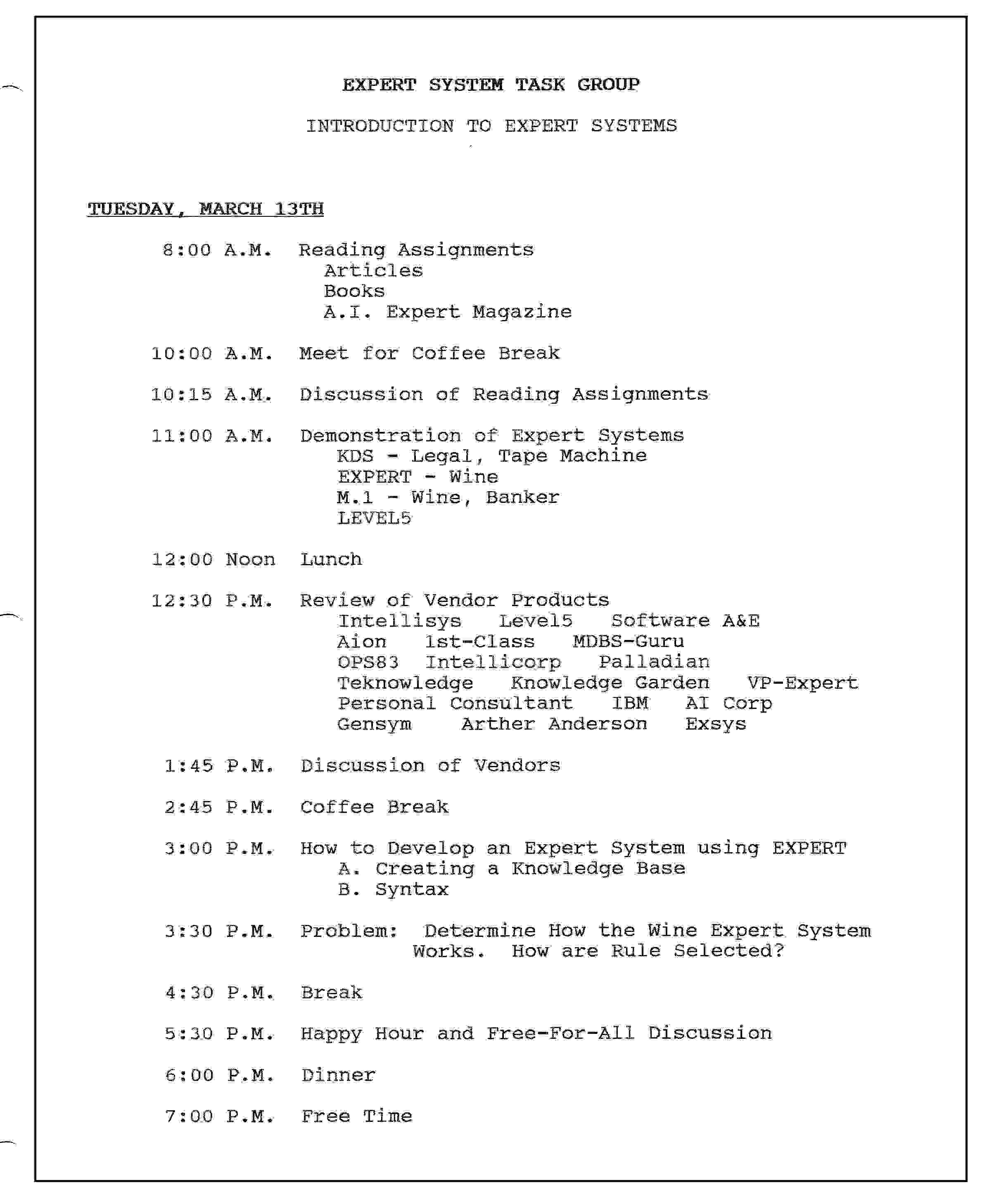
Expert Systems were not going far in Columbia after TCO failed to start any of the recommended expert systems that I identified in my report of 1988. John and I talked it over and, after some time, we were able to present to management a plan to set up an Expert System Task Group to survey all of Columbia for possible applications of expert systems.
This would be a major project that would cut across all Columbia subsidiaries and would be structured much like my recent survey of possible applications at TCO. People would have to be assigned to the project, and trained in:
Five employees were assigned to the project and we were given about three months to complete our task. The first thing to do was train the members. This I accomplished by writing a manual on expert systems and then conducting a four and one half days training course. To insure that the members would be free from other job requirement, which was not suppose to happen, I took the group to a State Of Ohio state park where they had meeting facilities. Each day we would begin at 8AM and finish up about 5PM. A typical schedule:
Once the members had this knowledge they could begin the task of searching out applications and evaluating them.

Once the Task Group members were trained they were sent back to their respective companies to begin the process of interviewing selected personnel. The basic conditions needed for the application of an expert system are:
The final report was submitted on June 15, 1990, and recommended a four phase strategy for implementation of expert systems within Columbia Gas System:
|
|
|